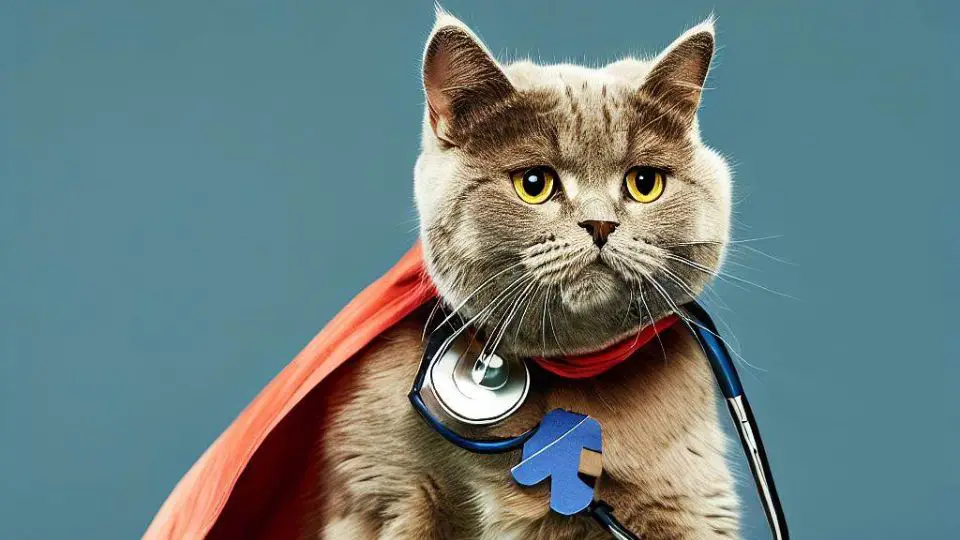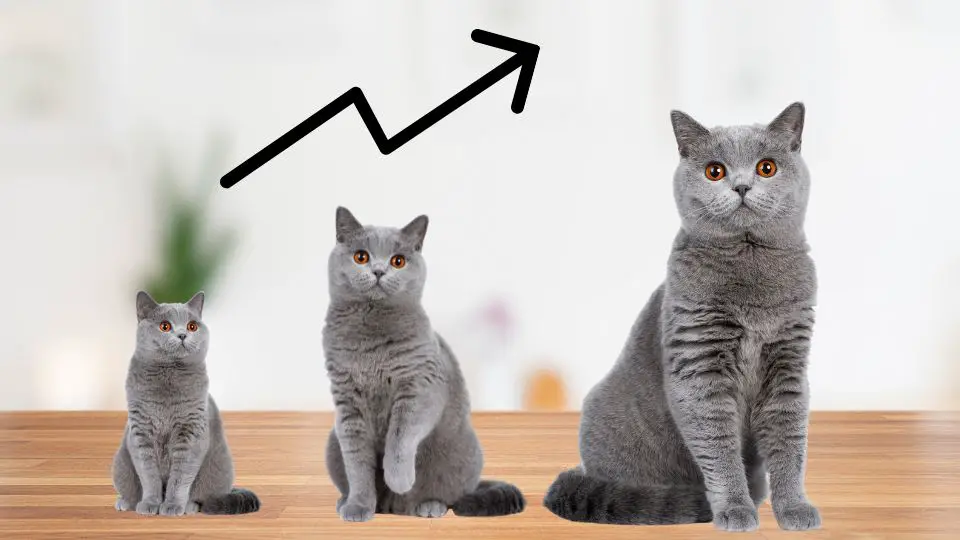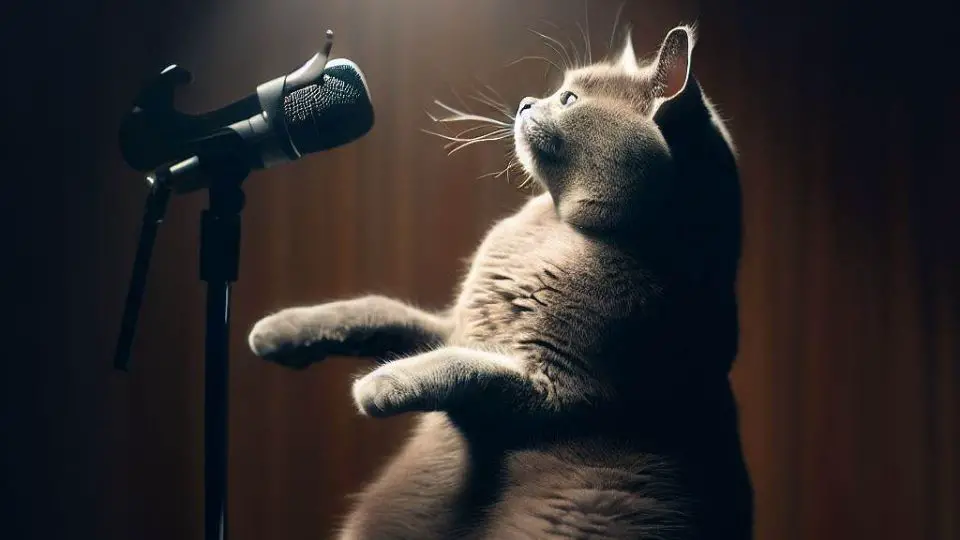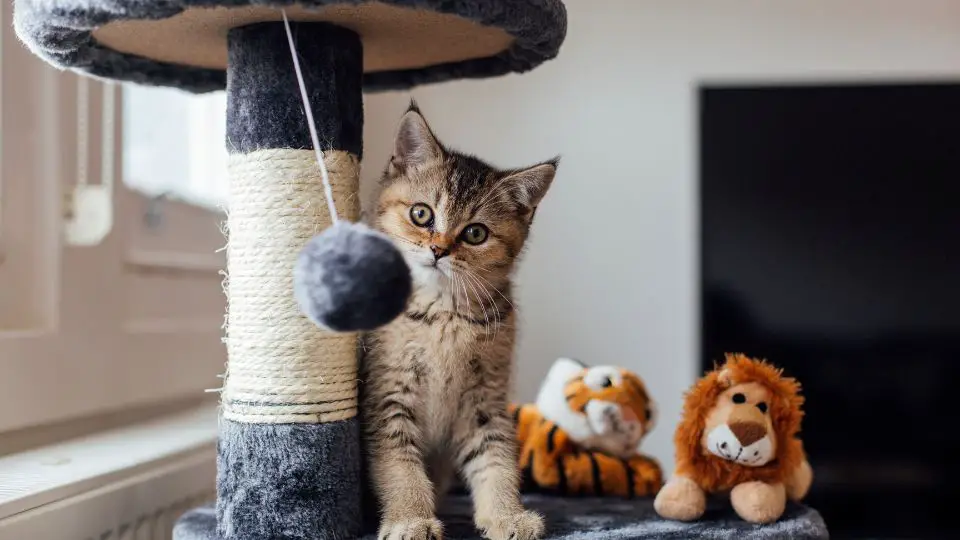Hypertrophic cardiomyopathy (HCM) is a genetic heart disease that is common in British Shorthair cats. It is a serious condition that can lead to heart failure and sudden death.
Understanding the causes, signs, and treatment of HCM is essential for owners of British Shorthairs to help prevent and manage this condition.
Causes of HCM in British Shorthair Cats
Hypertrophic cardiomyopathy (HCM) is a common heart condition that affects British Shorthair cats. It is a serious and potentially life-threatening disease that can be caused by both genetic and environmental factors.
Genetic predisposition
One of the primary causes of HCM in British Shorthair cats is a genetic predisposition. It is an inherited disease that is caused by mutations in specific genes that regulate heart muscle growth. The genetic mutations lead to abnormal thickening of the heart muscle, which can cause various symptoms and complications.
Environmental factors
Environmental factors can also contribute to the development of HCM in British Shorthair cats. These factors can include a poor diet, lack of exercise, obesity, and exposure to toxins. Stress and underlying medical conditions such as high blood pressure and hyperthyroidism can also increase the risk of developing HCM.
Signs and Symptoms of HCM in British Shorthair Cats
Heart murmur
One of the most common signs of HCM in cats is the presence of a heart murmur. A heart murmur is an abnormal sound that can be heard when listening to the heart with a stethoscope. It occurs when there is turbulent blood flow through the heart, which is often caused by the thickened heart muscle in cats with HCM.
Breathing difficulties
British Shorthair cats with HCM may also experience breathing difficulties. This can include labored breathing, rapid breathing, or panting. These symptoms occur because the thickened heart muscle makes it harder for the heart to pump blood and oxygen to the lungs.
Lethargy and weakness
Another common symptom of HCM in British Shorthair cats is lethargy and weakness. Cats with HCM may become tired and fatigued more easily than normal, and may not have the energy to engage in their usual activities.
Fainting or collapse
In severe cases of HCM, British Shorthair cats may experience fainting or collapse. This is caused by a lack of oxygen to the brain and body, which occurs when the heart is unable to pump blood effectively.
Diagnosis of HCM in British Shorthair Cats
Early diagnosis and treatment are crucial for managing the condition and improving the cat’s quality of life. The following are some diagnostic tools used by veterinarians to diagnose HCM in British Shorthair cats:
- Physical examination: During a routine physical exam, a veterinarian may detect abnormal heart sounds or a heart murmur. They may also observe the cat’s breathing and general health status to identify any signs of respiratory distress or weakness.
- Echocardiography: This is the most effective diagnostic tool for HCM, as it allows for visualization of the heart’s structure and function. During an echocardiogram, a veterinarian can assess the thickness of the heart walls and the size of the heart chambers to determine if there are any abnormalities.
- Blood tests: Blood tests can help identify other health issues that may be contributing to or exacerbating HCM, such as thyroid dysfunction or anemia.
Note that not all cats with HCM will show abnormal results on a physical exam or blood tests. Therefore, an echocardiogram is the gold standard for diagnosing the disease.
Treatment and Management of HCM in British Shorthair Cats
Here are some common methods used in the treatment and management of HCM in British Shorthair cats:
Medications to control symptoms
Cats with HCM may be prescribed medications to manage their symptoms, such as beta-blockers or calcium channel blockers. These medications can help to regulate heart rhythm, reduce blood pressure, and ease the workload on the heart.
Dietary changes
Diet plays an important role in managing HCM in British Shorthair cats. Feeding a diet that is low in sodium and fat can help to reduce the strain on the heart and prevent fluid buildup. A veterinarian may recommend a special prescription diet or a homemade diet that is tailored to the cat’s individual needs.
Lifestyle changes
Cats with HCM should avoid activities that put undue stress on their heart, such as jumping or running. They should also be kept at a healthy weight to reduce the strain on their cardiovascular system. Environmental enrichment, such as providing comfortable bedding, toys, and scratching posts, can help to reduce stress and improve the cat’s overall well-being.
Prevention of HCM in British Shorthair Cats
HCM has been shown to have a genetic component, and some lines of British Shorthair cats may be more prone to the condition than others. Breeders can help to reduce the risk of HCM by testing their cats for the genetic mutations associated with the condition and only breeding from cats that are free of the mutation. Potential kitten buyers can also inquire about the health history of the parents and ask to see the results of any genetic testing that has been done.
Regular veterinary check-ups are important for all cats, but they are especially important for British Shorthair cats that may be prone to HCM. During these check-ups, the veterinarian can listen to the cat’s heart and monitor for any signs of HCM. They may also recommend additional tests, such as echocardiography or blood tests, if they suspect that the cat may have the condition.
In addition to genetic testing and regular veterinary check-ups, there are other steps that can be taken to promote the overall health of British Shorthair cats. These include:
- Feeding a balanced diet that is appropriate for the cat’s age and activity level
- Providing regular exercise and playtime to help maintain a healthy weight
- Keeping the cat’s environment clean and free of irritants that could affect respiratory health
- Providing plenty of fresh water at all times to help maintain hydration
- Managing any other health conditions that the cat may have, as these can increase the risk of developing HCM.
Conclusion
Hypertrophic cardiomyopathy is a serious condition that affects many British Shorthair cats. Owners should be vigilant for the signs and symptoms of HCM and take preventative measures to manage the condition.
With regular veterinary check-ups, genetic testing and selection, and proper treatment and management, owners can help ensure their British Shorthairs live healthy and happy lives.







